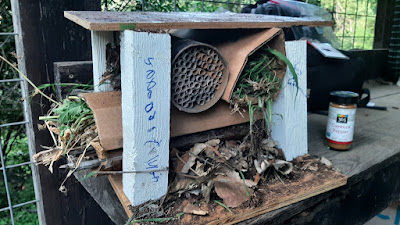Despite Central Texas experiencing brutally hot summers and generally mild winters, it is not uncommon for our area to experience extreme cold snaps due to "artic vortexes". It is a bit counter intuitive, but Climate Change models predict an increase in artic vortexes due to weakening of the mid-latitude jet streams as the higher latitudes warm at a faster rate than the lower latitudes. As the the jet stream weakens, it cannot hold back the air in artic regions as easily, allowing extreme cold air masses to migrate further south more often. Many recall the exceptionally cold Snowpocalypse of 2021 and the major ice storm of 2023 that caused extreme damage to garden and landscape plants. Meteorologist are predicting a severe winter for this area due to the Farmers Almanac and El Nino weather patterns. Although there may be challenging weather this winter for our landscape and garden plants, there are several precautions that can be taken to mitigate freezing temperatures.
Winterization at RWCEG
Many fruit and vegetable plants will die or suffer damage during a freeze due to cellular rupturing in the leaves and stem of the plant as the water in the cells expand into ice crystals. At RWCEG, there are a few methods we practice to help our garden plants through the winter months.
1. One very important piece of advice is to grow plants that are more cold hearty. Growing warm-weather plants such as tomatoes, peppers, or potatoes are very likely to fail. Better alternatives include broccoli, cauliflower, Brussel sprouts, lettuce, and carrots. Refer to the vegetable growing guide for a chart on planting times.
2. It is important to be weather aware during the winter to anticipate freeze events. When a freeze is forecasted, the garden bed should be thoroughly watered ahead of the freeze. It seems counter intuitive to add water to the soil since as water expands to becomes ice, it can cause cellular damage to the plant. However, the water helps re-hydrate the plants to improve their cold heartiness. Furthermore, since water has a much higher specific heat capacity than air, the water reduces the rate of cooling of the soil.
3. After the soil has been watered, it should be covered by a few inches of mulch. The mulch will help hold in the heat of the soil against the cooling air. Good mulch materials include shredded leaves, pine needles, cut grass, straw, or woody landscaping mulches.
4. If feasible, it is best to cover the plants under a think blanket or tarp. However, be sure there is a surrounding structure to prevent the weight of the covering from harming the plant. It can be especially problematic if it rains or ice forms on the covering since the added weight can cause further harm. Many gardeners will use tomato cages or large buckets to surround the plants before adding the protective covering. Since the garden beds at RWCEG are topped with hoops covered in mesh materials to protect the plants from wildlife, the gardeners there typically drape the the hoop structure with a large translucent plastic sheet or a tarp. An advantage of a translucent material is it allows sunlight to reach the plants during day time, and it acts like a greenhouse to raise the temperature of the plant's enclosed environment. Refer to the covered bed picture below as an illustration. This illustrated coving protected bell pepper plants when there were near-freeze conditions during the week of Halloween.
 |
| Covered garden bed in anticipation of freeze. |
Zilker Garden Classes
On October 21, Mary Kraemer from the Austin Organic Gardeners organization presented "Artic Vortex Garden Prep" at the Zilker Botanical Gardens . Below are helpful handouts from the gathering that summarize actions to protect plants from freezing conditions. Click on the images to enlarge.

















